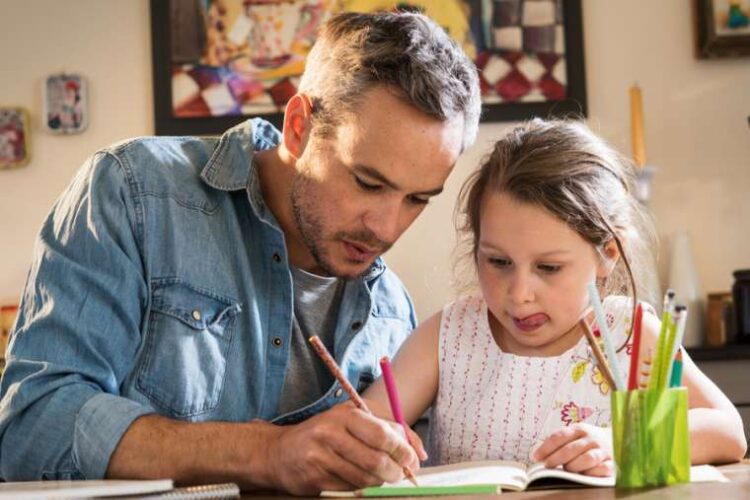By Sheila Mckenzie-
British men are today encouraged to take part in more home schooling, and not shirk their responsibility to support their children.
Male parents who are academically qualified should be held accountable for their contribution to the educational development of their children,
Following a criticised government advert last week in which women were featured doing the home schooling and the dishes, there is a fresh clamour for men to be encouraged to contribute more to home schooling.
Men are known to generally live the home schooling and domestic work to the women, when men should be encouraged to step up to the plate and support their children more often.
A limited survey we conducted of parents supporting their children in remote learning during the pandemic has revealed that more women are taking up the task of supervising their children’s school work at home.
Children are assigned work to do from school on a daily basis, but many of them need help to fulfil the various tasks.
Mothers in 60% of 120 families interviewed, were boning up for the task of home schooling children during the pandemic.
Of that number, 50% of the women said they were more academic, or had higher qualifications than their male partners. However, 35% of the women spoken to said their male partners were educated enough to help their children in subjects like Geography, history, and English.
Fewer men were confident in their ability to help their children in Maths, but mothers felt a duty to do their best in helping their children in Maths.
A broader study conducted by the ONS found that men and women overall were evenly distributing their contribution to home schooling. However, this may have depended on the class of families surveyed
one in three women with school-aged children said their mental health had suffered as a result of home-schooling, compared with 20% of men . Women also participated more in child duties than men.
During the first weeks of lockdown, in households with children aged under 18 years, women were carrying out on average two-thirds more of the childcare duties per day than men.
Women were delivering an average of 3 hours and 18 minutes of childcare, which includes time spent supervising children, while men contributed 2 hour
The amount of childcare provided, and the extent to which women or men provided it, depended greatly on the age of the child.
Women did more than double the proportion of cooking, childcare and housework than men. It also revealed that mothers on maternity leave carried out 37 hours of active engagements with their children per week.
Awareness
Greater awareness of the need for men to commit to supporting their children’s education, and not just leave it to the women, is necessary. Schools should go out of their way to inquire the different standard of education of pupil’s parents, and frame their expectations of how much they contribute to their development.
Some schools train parents on how to contribute to their children’s education, making sure one of both parents is playing their role in the education of their child, especially where the parents has G.C.S.E certificate or higher.
Ofsted has been presented with the positive idea which could add to their task in the supervision of school’s and families. Male parents must be encouraged to support their children more. Many men from stable homes are already contributing to the education of their children, but all men, whatever their socio economic background need to do their best to support their child.
Fathers need to connect better with their children, and take the time to go through some of their assignments with them, in the process discovering their child’s weakness and working on it.
It is advisable for male parents and guardians to be held to account with respect to their support for their children, and potential sexism nipped in the bud, where it could be festering without any constraint.
Children from families who have a mixture of male and female contribution to their studies, tend to do better in school, and have a higher level of confidence.
Parents of children who read or work at the same time of their children, were found to be more motivated in learning, and idolised the parent with whom they shared time in reading their different books.
The psychological influence of parents to their children’s education should not be under estimated.
Image:catholicnewsagency.com

